Get A Quote
BIS Guidelines for Scheme-X Certification for OTR-Regulated Products
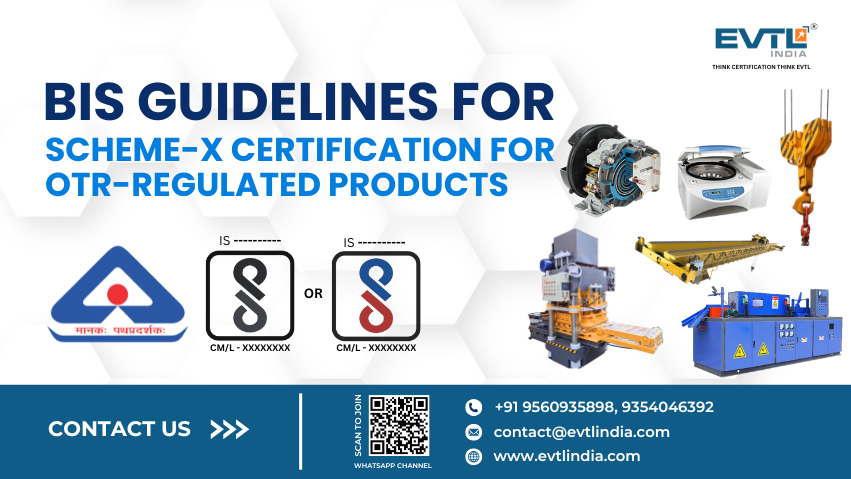
The Bureau of Indian Standards (BIS), through its Central Marks
Department-I, has issued a detailed notification outlining the Guidelines for Grant of Certification under
Scheme-X as per the BIS (Conformity
Assessment) Regulations, 2018. This move is crucial for manufacturers of
products regulated under the Omnibus
Technical Regulation (OTR), ensuring that safety, design, and compliance
requirements are met before products are introduced into the Indian market.
The guidelines are framed under Schedule–II, Regulation 4 and 5 of the BIS Conformity Assessment framework, and they support the structured evaluation and certification of both Indian and foreign manufacturers.
What is BIS
Scheme-X and Why is it Important?
BIS
Scheme-X is designed to assess products that fall under the OTR
framework, ensuring they meet essential
safety and technical standards. These products are often complex machinery
and industrial equipment, where safety and functionality depend heavily on
proper design, risk mitigation, and control systems.
Under Scheme-X, BIS grants two types
of certifications:
These certifications are pivotal for ensuring product credibility and regulatory compliance in India’s growing manufacturing and infrastructure sectors.
Also Read
Overview of
the Certification Process Under Scheme-X
The certification process begins with
the manufacturer submitting an
application (Form-I) along with a comprehensive
technical file. This file should include all relevant details regarding the
product's design, manufacturing process, safety features, risk assessments, and
supporting compliance documentation.
One of the core elements of the
technical file is the Product Compliance
Report (PCR). This document is expected to demonstrate that the product
conforms to applicable Indian Standards,
which may be multiple, depending on the product. The safety assessment aligns
with IS 16819 (Type A) and, where
applicable, machinery-specific standards (Type C), along with supporting
guidance from standards such as Type B1 (for safety aspects) and Type B2 (for
safeguarding devices).
BIS has also made publicly available product-specific guidance documents to assist manufacturers in understanding the application of these standards more effectively.
Key Evaluation
Stages
The certification process includes two
main evaluations:
- Desk Audit – Initial scrutiny of the application and technical file for completeness, correctness, and conformity to standards.
- Site Audit – A physical inspection of the manufacturing unit (and other relevant sites if applicable), which verifies the details provided in the technical file and tests safety mechanisms through live demonstrations.
Typically, site audits are conducted
by a team of two auditors over a period of four
mandays. If multiple products or technical files are involved, additional
time is allocated. These audits validate the real-time implementation of design
safeguards, quality controls, and operational safety measures.
Where necessary, audits may also be conducted at subcontracted or prototype assembly locations, especially if part of the manufacturing or final assembly is outsourced.
Conformity and
Compliance
The technical evaluation aims to
verify whether the product:
Non-conformities identified during audits are communicated to the applicant. They are provided a 15-day period to address these issues and confirm their readiness for re-audit or desk-based re-evaluation. In cases of repeated non-compliance, misleading documentation, or unethical conduct, the application may be rejected after following due process.
Grant of
Certification and Validity
After satisfactory completion of all
evaluations, applications are forwarded to BIS Headquarters for final approval.
If accepted:
Manufacturers may also request an opportunity to revise and resubmit their technical file after addressing discrepancies. However, continued delays or repeated deficiencies can lead to rejection as per Sub-regulation 6 of Regulation 4 of the BIS Conformity Assessment Regulations.
Additional
Provisions for Foreign Manufacturers
Foreign applicants must fulfill additional requirements, including appointing an Authorized Indian Representative and ensuring compliance with local evaluation processes. These are outlined in Annexure-IV of the guideline document.
Fees and
Submission
Final Word
The issuance of these guidelines marks
a significant step towards ensuring that products regulated under the Omnibus
Technical Regulation meet consistent safety and performance benchmarks.
Manufacturers intending to supply such products in India must align with these
comprehensive procedures to gain BIS certification under Scheme-X.
By following the prescribed process and maintaining high standards in documentation and safety validation, businesses can streamline their certification process, reduce time-to-market, and gain a competitive edge in the Indian industrial sector.
Need professional assistance with Scheme-X Certification?
As a leading regulatory compliance
consultant in India, we help manufacturers navigate the complexities of BIS
certification, prepare technical files, conduct risk assessments, and ensure
end-to-end application support for a smooth approval process. Get in touch to
learn more.
You can contact us via email at contact@evtlindia.com or by phone at 9560935898. Feel free to get in touch with us anytime for the support you need.
BIS ISI Mark Certification | BIS-CRS Certification | EPR E-WASTE | WMI Registration | BIS Certification For Footwear | TAC & IMEI Registration | BIS FMCS Page | TEC | EPR Registration for Plastic Waste Management | EPR Registration for Battery Waste Management | EPR Registration For Used Oil | EPR Registration for Tyre Waste Management | WPC ETA License | NOC | LMPC | Legal Metrology | Trademark Registration | ISO Certification | EMI-EMC Test | Toys | GEM Registration | EPCG Scheme | LM 79 & LM 80 | ROHS Approval | CDSCO Registration | RF Testing | IP Rating Test | MSME & NSIC Registration | BIS Certificate for Conformity | BIS Scheme-X Certification | Hallmark Registration | Laboratory Recognition Scheme | ECO-MARK Certification | RDSO | CE Certification | List Of Equipments | US FDA Registration | Lab Setup & Lab Equipment |
Recent Posts
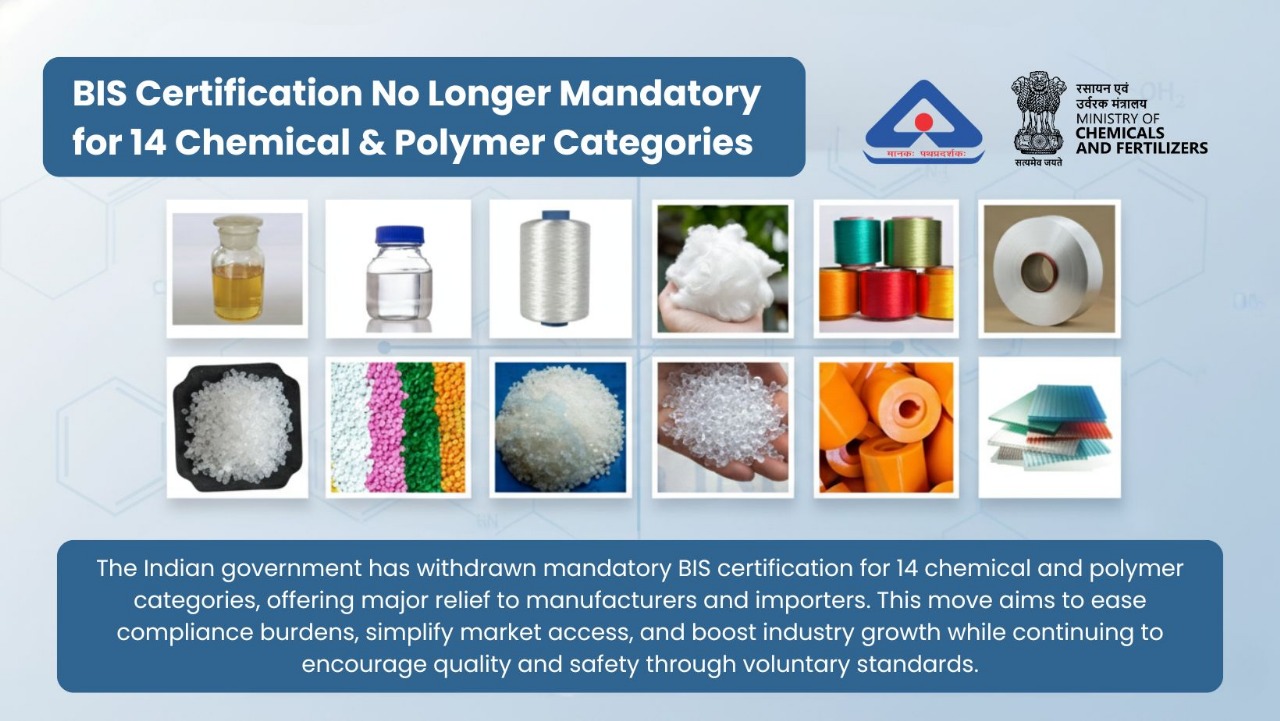
BIS Certification No Longer Mandatory for 14 Chemical & Polymer Categories
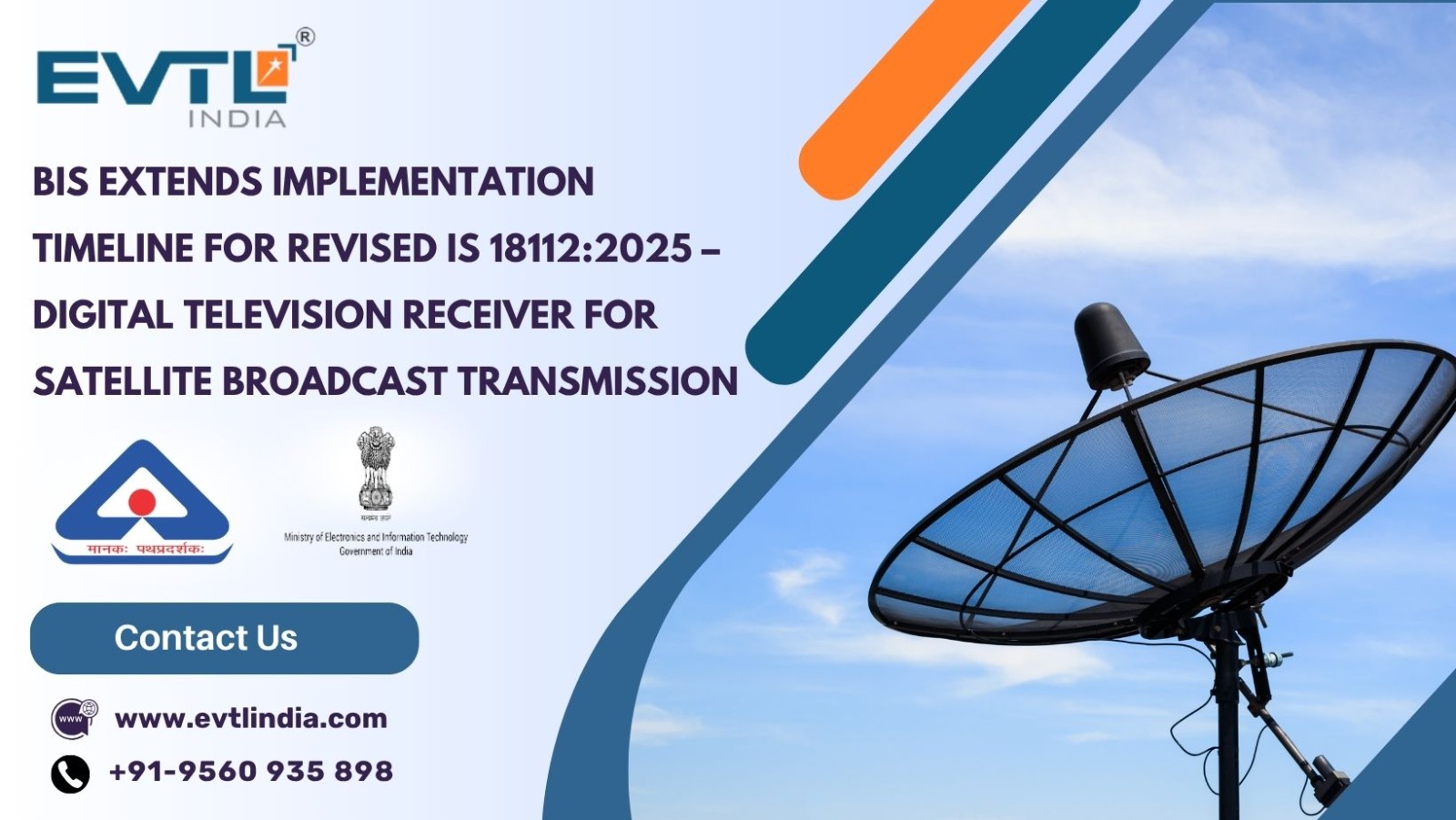
BIS Extends Implementation Deadline for Revised IS 18112:2025 – Digital Television Receivers for Satellite Broadcast Transmission
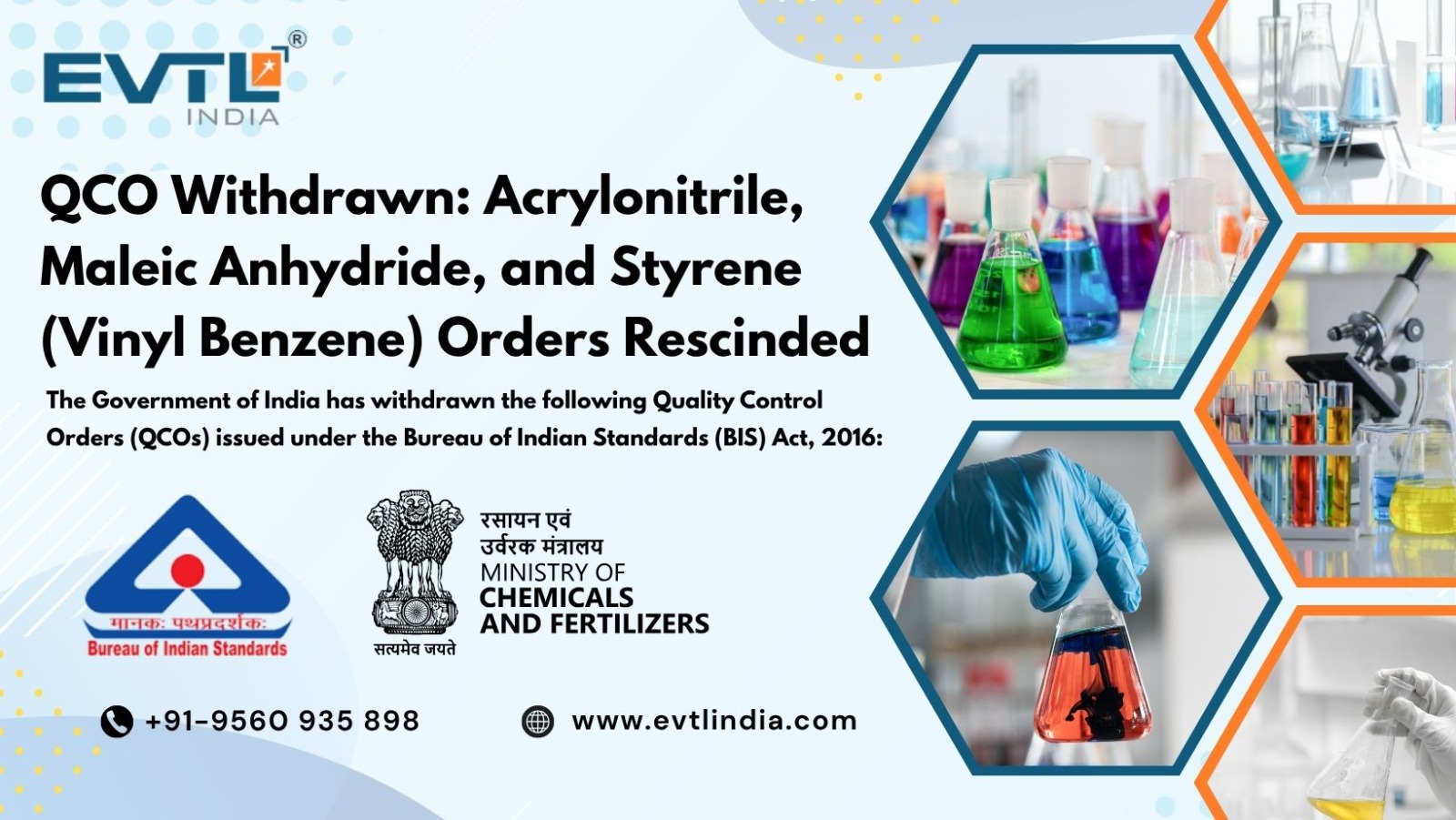
Government Withdraws Quality Control Orders for Six Chemicals – BIS Certification No Longer Mandatory
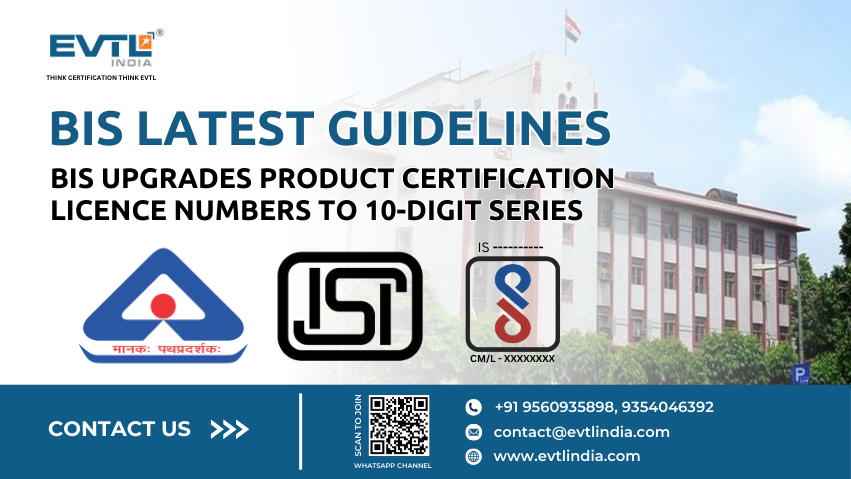
BIS Upgrades Product Certification License Numbers to 10-Digit Series

BIS Guidelines for Scheme-X Certification for OTR-Regulated Products
Free Call Back
Why Choose EVTL INDIA
Expertise in Indian Regulatory Standards
End-to-End Support
Trusted by Top Indian & Global Brands
Fast Processing & Transparent Pricing
Strong Liaison with Indian Authorities
Company Profile














